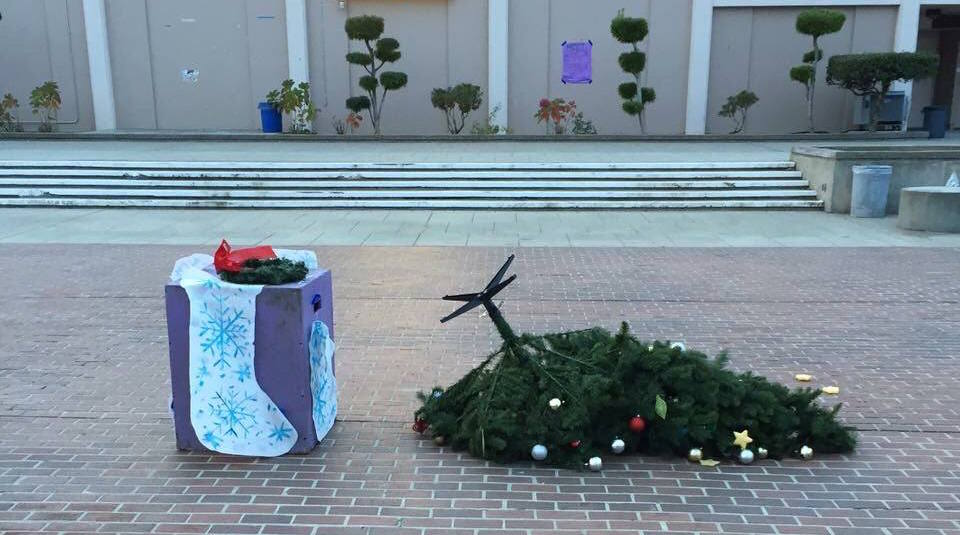
Christmastime is one of my favorite times of the year. There’s great music, holiday cheer, present-giving, seasonal food and plenty of reasons to be jolly. So why are people so apologetic about it?
Take MVHS’ Holiday Week as an example. To be more inclusive to students who don’t celebrate Christmas, the large plant in the quad was dubbed the “holiday bush” instead of a Christmas tree, but was still covered in traditional Christmas ornaments. Despite the intention to include every student, two days of the spirit week included Polaroid pictures with Santa and three days included “candy cane grams.” I’ve been to a lot of Hanukkah parties in my life and not a single one has included candy canes or Santa Claus, and I’m pretty sure that Hinduism doesn’t celebrate St. Nick as one of its religious figures.
Let me be clear about this: I love seeing you celebrate Christmas, and if you invite me, I will celebrate with you, but I do not want your holiday bush. My religion doesn’t utilise evergreen conifer trees to celebrate the holidays, so let’s not pretend that it does.
Instead, if you want to be inclusive, try working with the communities that celebrate non-Christmas winter holidays to make sure that they’re properly represented. Sweeping Hanukkah and Kwanzaa under a renamed Christmas tree doesn’t make anyone feel better about themselves and fails to highlight the diversity of backgrounds that we have on our campus. It’s okay to celebrate Christmas on campus; it’s a national holiday and many people in the MVHS community do celebrate it. However, if inclusivity is the goal, we shouldn’t just have candy cane grams and Polaroids with Santa. Consider contacting the Jewish Student Union and asking them if they want to include a Hanukkah artifact in the quad, or contact the black community to ask them how you can represent their culture and spiritual needs.
This struggle between overt, uncomfortable assimilation and inclusivity isn’t only an issue for MVHS. For years, the American Jewish community has struggled with the idea of whether or not it’s appropriate to buy children gifts for Hanukkah, since gift-giving is not a traditional Hanukkah ritual and was created by Jews to assimilate into a primarily Christian society. It’s natural for a kid to feel bad when all of their friends are getting new toys, games and, later in life, more extravagant gifts like gaming consoles, computers, and even cars, but I believe that it’s the duty of the adults of the Jewish community to explain to their children that Hanukkah is not the same as Christmas.
Christmas is supposed to be a joyful commemoration of the birth of Jesus Christ. Hanukkah is a commemoration of the Maccabean revolt against the Greek Seleucid Empire and its subsequent recapturing of the Second Temple. The story behind Hanukkah is one of struggle and oppression, and shouldn’t be grouped with the tale of a different holiday that just happens to have occurred around wintertime.
To me, Hanukkah is a time where I’m thankful that I have the ability to write an article about Hanukkah, where I try to be conscious of how incredible it is to live in a country that allows me the freedom to practice whatever religion I want to practice; there’s no sweeter present than that.
In a perfect world, we would have total inclusivity of all cultures and religions at MVHS during the winter season and everyone could be jolly in their own special way, but for now, it’s probably better to finally admit that we’re not as secular as we should be and just have ourselves a jolly old Christmas.
Photo used with permission of Ahmad Ali-Ahmad







